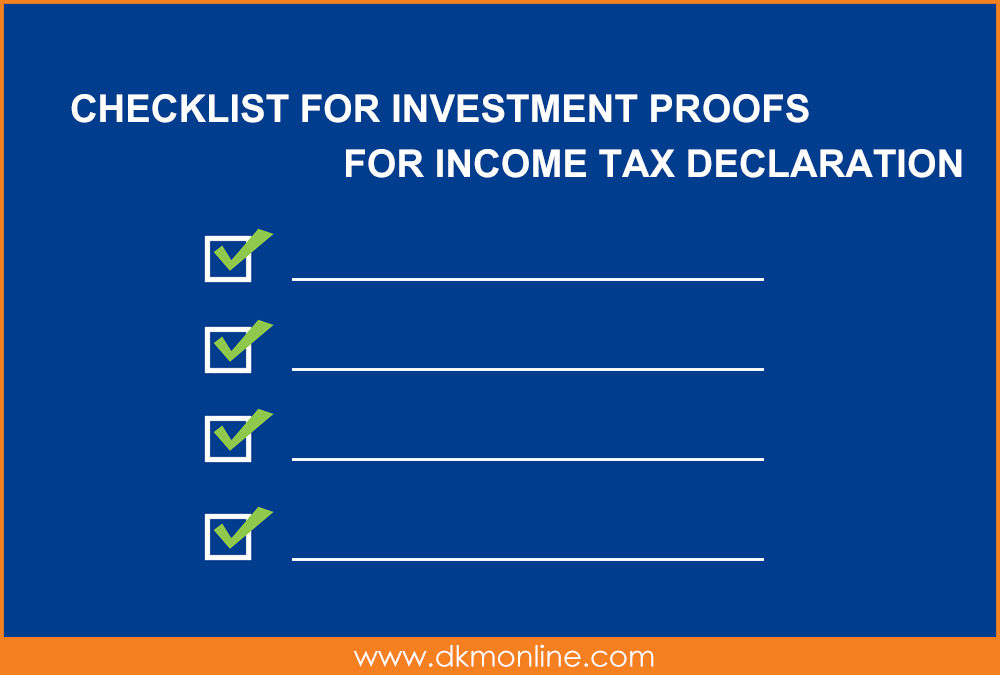The tax season is around and this is when the employees and salaried staff is worried about the Investment Proofs. The significance of Investment Proofs lies in the fact that these are necessary for Income Tax Declaration and also lead to tax benefits in many cases.
This is in continuation to our previous blog on Investment proofs, where we talked about the basics and why of Investment Proofs. The idea of this post is to share a checklist to discuss before you submit your investment proofs to the employer. It is the employee who holds the sole responsibility of required investment proofs. Therefore,here are certain things that you must consider before submitting your investment proofs to your employer in time.
Let’s look at some important points to remember before submitting investment proofs:-
Submit Bills for Perquisites and Allowances
There are certain perquisites which are exempt under the Income Tax Act, on the basis of actual expenditure made by the employee. For claiming such expenditures, the employees need to maintain proofs of such expenditures paid by employee. Unless the taxpayer submits the proofs of such relevant expenses to the employer within the given time, then these will be considered as taxable allowances in the hands of the assesse and he will not be able to claim exemption while filing the tax return.
Tax Deductions on Personal Expenses
There are some personal expenses which can fetch some tax deductions for the assesse. One should track such expenses and maintain proofs for such expenses to be submitted to the employer. For Example, School fees receipts of kids, medical bills, telephone bills, travel tickets for LTA, donations, etc.
Income from other sources
Income from other sources is also required to be declared by the assesse. Many employers don’t tend to include this in the Income tax return as the employee are not aware and hence they do not provide proper proofs for such income and hence due to this assesse may receive a notice from income tax department for non-declaration of income.
So, it is important to note that whether your employer is providing an option for declaring income from other sources or not. If not, then the assesse should calculate self-assessment tax for income from other sources.
Report all Bank Accounts
Last year it was made mandatory to list all bank accounts in the ITR Form. But is it required to report an account which is no longer active. An account is considered inactive if it is not used for 12 months and has to be listed. But it is not compulsory to provide details of the account which are dormant. So,assesse can omit details of those accounts which have been in operational for past 36 months, since those are considered dormant.
Where, RBI norms specifically provide that an account becomes dormant if a customer does not initiate transactions such as withdrawal of cash at a branch or ATM, cheque payment, transfer of funds through net banking, phone banking or ATM.
Submit previous employment income to current employer
The assessee should also declare previous employment income and tax returns to the current employer. As tax is deducted for the complete year so if an assessee has switched his job he should declare his previous employment income proofs to the current employer so that he can calculate tax on your total income for the year and deduct TDS accordingly.
The above are the certain checklist mentions while submitting your investment proofs. However, if you have a doubt or need further clarity on the investment proofs, feel free to write to us at helpdesk@edkmonline.com or you can connect here.

